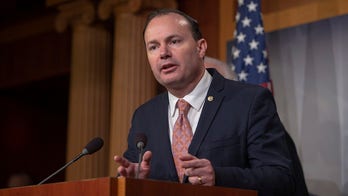The Congressional Budget Office said Sunday that the Senate health care bill would not reduce long-term federal deficits as much as previously estimated, acknowledging that it made an "error" in its original analysis.
CBO Director Doug Elmendorf wrote in a letter to Senate Majority Leader Harry Reid that while the correction has no bearing on estimates for the impact of the bill over the next decade, it does slightly reduce the amount of money the plan is expected to save for the 2020-2029 period.
The original estimate said the health care overhaul would yield deficit reductions worth about one-half percent of GDP -- the revision put that figure between one-quarter and one-half percent.
He also wrote that savings from Medicare cuts and changes would add up to about 10 to 15 percent per year in that period, compared with the 15 percent savings in the original projection.
Elmendorf said the legislation should still reduce budget deficits after 2019 -- but just not as much.
The CBO rarely makes such long-term estimates for proposed legislation but in this case did it anyway. Senate Republicans swiftly seized on the error, calling it "major." In correcting the mistake, Elmendorf noted that projections for a bill 10-to-20 years down the road can be highly unreliable.
"The imprecision of these calculations reflects the even greater degree of uncertainty that attends to them," he wrote.




